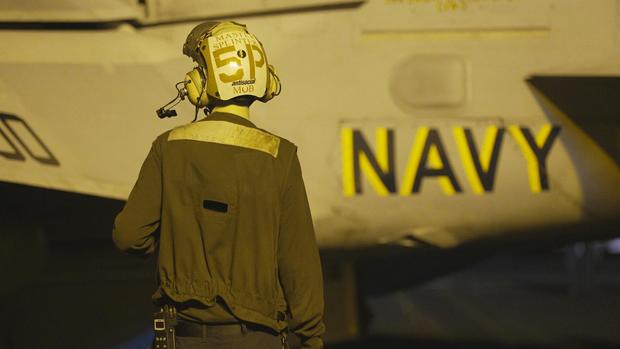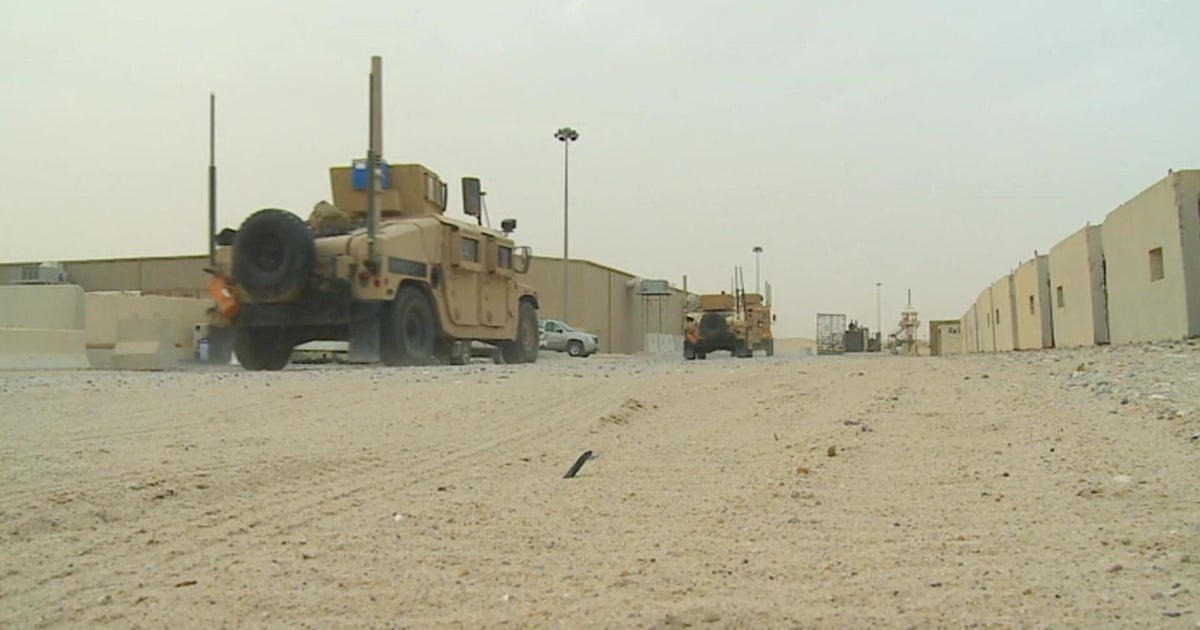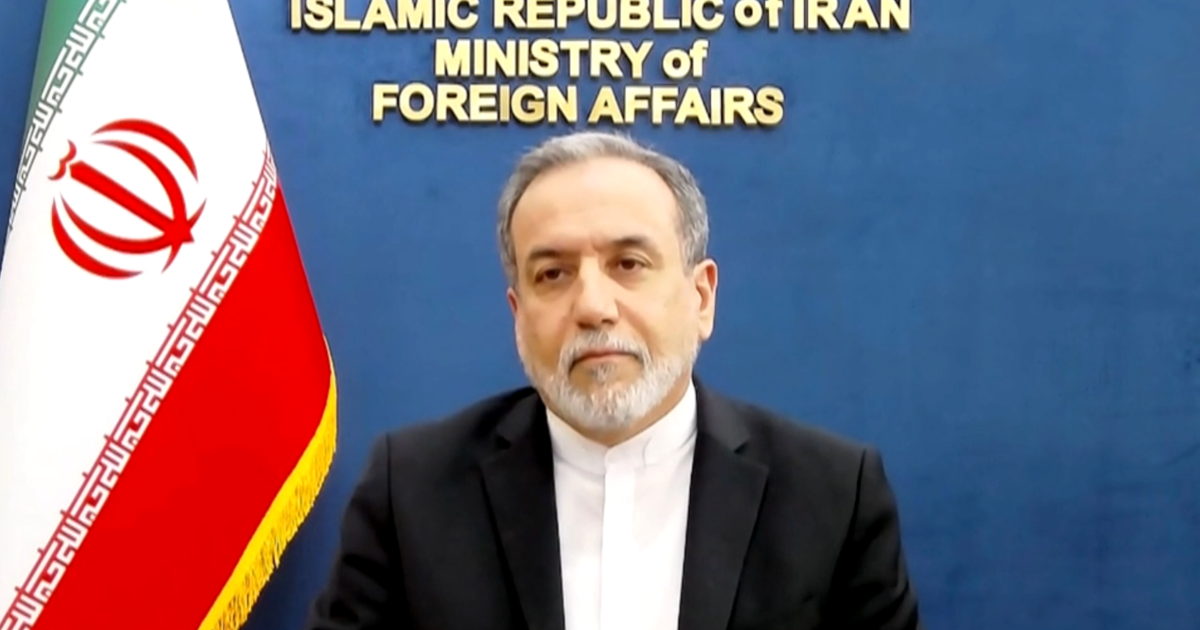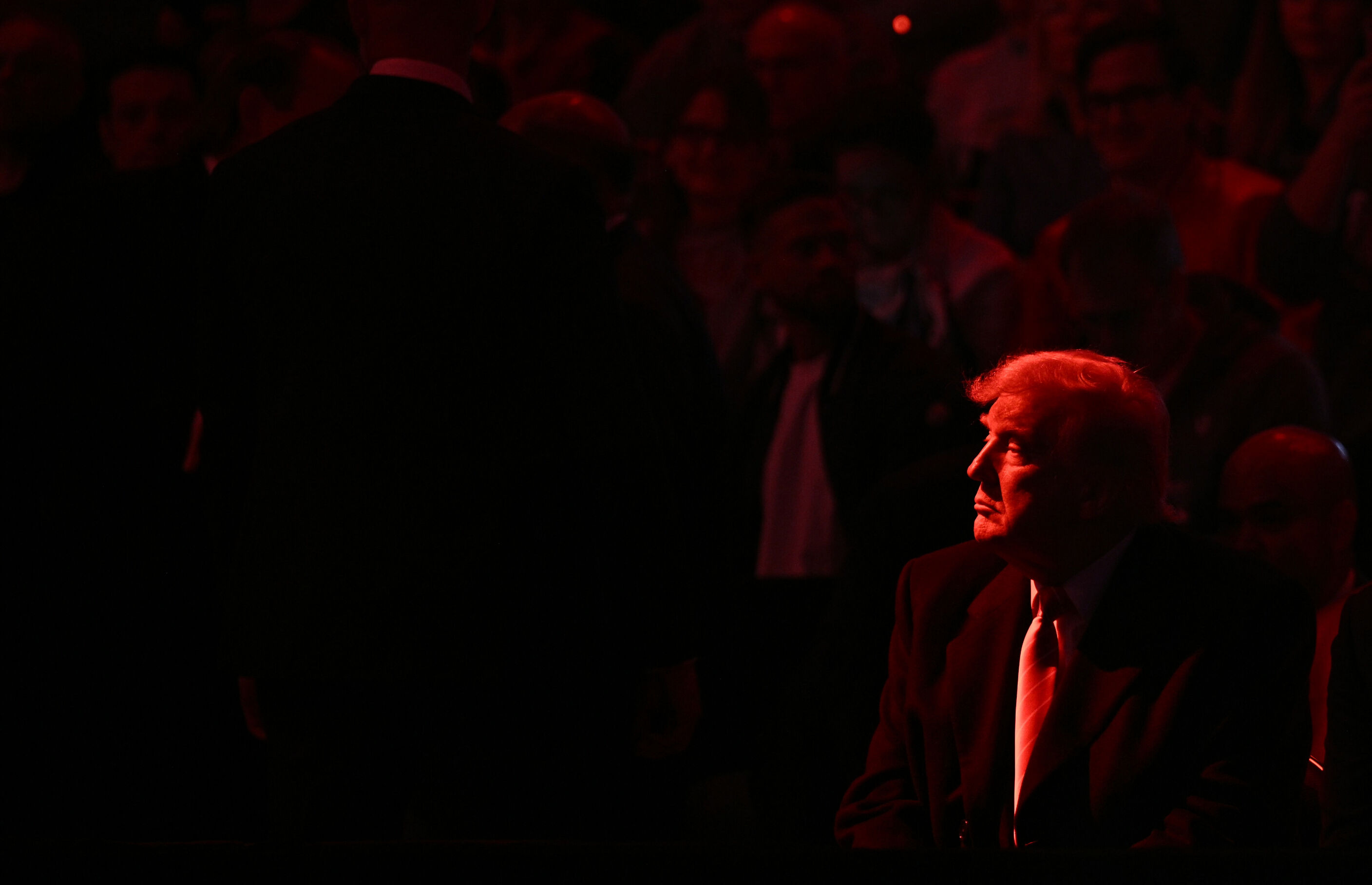U.S. Navy three-star admiral discusses the mission to stop Houthi Red Sea attacks
Vice Adm. Brad Cooper, deputy commander of U.S. Central Command, is warning that it would be unwise to think of the Houthis as a ragtag group.
Though Yemen, where the Houthi militia is based, is the poorest country in the Middle East, the terrorist group has been backed, supplied and trained by Iran for years, Cooper said. It's enabled the group to launch a barrage of drones and anti-ship ballistic missiles, targeting at least 45 ships in the last few months, disrupting crucial international shipping corridors.
"For a decade, the Iranians have been supplying the Houthis. They've been resupplying them. They're resupplying them as we sit here right now, at sea," Cooper said. "We know this is happening. They're advising them, and they're providing target information. This is crystal clear."
Who are the Houthi rebels and why are the Houthis firing on ships in the Red Sea?
After Hamas launched its deadly terrorist attack in Israel in October, and Israel began its unrelenting war in Gaza in response, President Biden warned Iran and its allies in the Middle East to stay out of the conflict. But the Houthis, a Shia Islamist group, decided to jump into the fray.
The Houthis, who seized Yemen's capital Sanaa in 2014 and now control the most populous parts of the country, initially stated they would only shoot at ships linked to Israel, in support of the Palestinian people, to force a cease-fire between Israel and Hamas.
But their aims — both politically and in targeting ships — appear to be imprecise. The Houthis have fired at ships tied to dozens of nations, wielding anti-ship ballistic missiles that have never been used in a conflict before. The U.S. government in January re-designated the Houthi movement as a terrorist organization as the group stepped up attacks in the Red Sea. The Houthis' official motto is: "God is great, death to America, death to Israel, a curse upon the Jews, victory to Islam."
Why the U.S. is targeting Houthi operations
Yemen's nearly 1,200 miles of coastline sit strategically where a trillion dollars worth of global trade moves every year in and out of the Suez Canal. The waterway is the primary route by sea between Europe and Asia. So when the Houthis began attacking commercial ships in solidarity with Hamas, the world's largest container ship companies began to avoid the Suez and go around Africa's Cape of Good Hope instead, adding as much as a month of travel time and a million dollars in fuel costs on each roundtrip.
The disruption could pose a risk to the global economy, Federal Reserve Chair Jerome Powell recently told "60 Minutes," adding that it's "going to affect Europe much more than it's going to affect" the U.S. Tesla and Volvo were both forced to suspend some European production last month due to the disruptions.
This has led Mr. Biden to deploy the U.S. Navy into the first major naval fight of the 21st century. Right now, there are around 7,000 sailors in the Red Sea, Cooper said.
"We are not going to let the Houthis hold this strait hostage," he said.
The U.S. isn't alone in defending the Red Sea corridor: it is part of a coalition of more than 20 nations, operating under the name Operation Prosperity Guardian. But the bulk of the ships, aircraft and firepower is coming from the U.S.
"Fifteen percent of global trade flows exactly through the Red Sea," Cooper said. "Keeping these vital waterways open is critical. It's a core commitment the United States has from a strategic perspective, maintaining the free flow of commerce."
How the U.S. is targeting Houthi operations, protecting commercial ships in the Red Sea
Cooper said the last time the Navy engaged in combat at this scale and intensity for several months was World War II.
American destroyers are a key part of the fleet. Commander Justin Smith captains the USS Mason, which is one of four American warships in the area that have shot down more than a dozen Houthi anti-ship ballistic missiles. Crew members often have only seconds to decide whether to engage and what types of weapons to deploy to destroy an incoming threat, like a Houthi drone or ballistic missile.
During this mission, the Navy has engaged about 100 of their Standard surface to air missiles, which can cost as much as $4 million each. Sometimes the missiles are used to shoot down Houthi drones that could cost about $10,000, but Smith says it's about more than money.
"I don't think you can put a price tag on safety and the defense of our sailors on board," Smith said.
On the aircraft carrier USS Dwight D. Eisenhower, Rear Adm. Marc Miguez said the Houthis have proven to be resourceful adversaries.
Miguez said that so far, the USS Eisenhower has only been focused on the Houthis in the Southern Red Sea. Since Jan. 11, planes deployed from the aircraft carrier have regularly targeted Houthi launch sites in Yemen to reduce the group's capabilities.
Miguez said the aircraft carrier has been focusing on Houthi activity in the Red Sea and not on targeting other Iranian proxy groups in the region. The U.S. has reported at least 170 attacks against American forces in Syria, Iraq and Jordan by Iran-backed groups since the Israel-Hamas war began. A drone strike on a base in Jordan killed three U.S. service members on Jan. 28.
The Iranian Revolutionary Guard Corps is inside Yemen, and they are serving side-by-side with the Houthis, advising them and providing target information, Cooper said. He added that whatever's done to degrade that capability would "obviously end up being a policy decision."
"Our role at this point is to simply be ready and continue to be aggressive in exercising our right to self-defense in targeting those missiles and drones that are trying to target us," Cooper said.
When will U.S. operations in the Red Sea end?
Cooper said he believes the U.S. airstrikes against Houthi targets will not escalate the conflict, since they are mainly done in self-defense.
"Again, we're targeting those platforms that are targeting us," he said.
But Houthis keep firing back, with attacks in December and January that show no signs of stopping. However, Cooper said it's clear the U.S. military is degrading Houthi capability.
"Every single day they attempt to attack us, we're eliminating and disrupting them in ways that are meaningful, and I do believe have an impact," he said.
Cooper also said he has an endgame in mind.
"That is the restoration of the free flow of commerce and safe navigation in the Southern Red Sea," he said.







